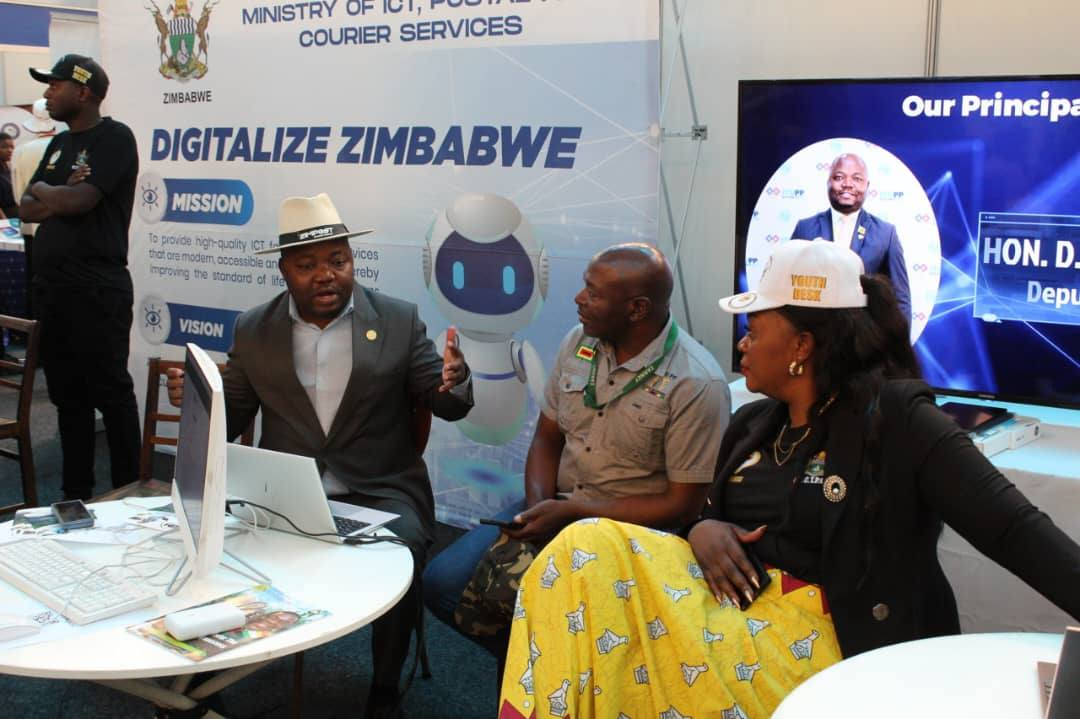
Our Mission
To provide high-quality ICT facilities and services that are modern, accessible and affordable, thereby improving the standard of life for Zimbabweans.
Our Vision
A connected knowledge-based society with secure information systems by 2030.
Our Core Values
Transparency
Inclusivity
Creativity
Teamwork
Integrity
Ministry's Functions
Delivering comprehensive ICT services and infrastructure to drive Zimbabwe's digital transformation
Knowledge-Based Society
Develop an enabling environment for the creation of a knowledge-based society that transcends across all levels of society.
ICT Coordination
Co-ordinate all ICT matters in Government, including infrastructure, applications development and ICT policy formulation.
Policy Development
Develop appropriate policies and strategies that enhance the provision of ICT, telecommunication, postal and courier services.
Regulatory Framework
Spearhead the development of appropriate regulatory frameworks for ICT, telecommunications, postal and courier services.
ICT Literacy
Champion and promote ICT literacy and utilization to enhance regional and international competitiveness.
Infrastructure Development
Develop supportive infrastructure to ensure equitable access to ICTs by all citizens including marginalized groups.
Website Support
Support MDAs with the skill and knowledge to maintain websites and digital presence.
Impact Evaluation
Evaluate the impact of ICT, telecommunications, postal and courier services across all sectors of the economy.
Research & Development
Champion and coordinate national ICT research and development of cost-effective solutions.
Quality Standards
Introduce and enforce international best practice quality service standards in the provision of ICTs.
Investment Environment
Create a conducive environment for investment through public private partnerships.
Parastatal Management
Manage parastatals and state-owned enterprises under the Ministry's purview.
Innovation Promotion
Promote innovation in the ICT sector to spur growth of the ICT industry.
E-Waste Management
Create and manage national e-waste management policies, strategies and processes.
Anti-Dumping Measures
Coordinate development and monitoring of anti-dumping laws to prevent importation of obsolete ICT equipment.
All Departments and Units
Serving the nation through specialized divisions
Infrastructure Development and Management
Led by a Director and two Deputy Directors, this department oversees the development, management, and maintenance of central government ICT infrastructure, such as the PFMS Network. It ensures equitable ICT access for all citizens, including disadvantaged groups and rural communities, through initiatives like information kiosks and community information centers.
ICT Applications Development and Management
Headed by a Director and two Deputy Directors, this department coordinates, advises, monitors, and provides technical support for all government ICT activities. Responsibilities include systems requirements analysis, tender evaluation, ICT acceptance testing, and project management.
ICT Security
Led by a Deputy Director, the ICT Security unit conducts periodic awareness and training on information security policies, standards, and procedures. It collaborates with other security services to monitor and respond to cyber threats that could compromise social and economic interests.
Finance, Administration, and Human Resources
Headed by a Director and supported by a Deputy Director-Human Resources, Chief Accountant, and Deputy Director-Administration, this department prepares and executes the Ministry's budget, produces financial statements and returns, and manages assets and property.
Strategic Policy Planning, Monitoring, and Evaluation
Led by a Director and two Deputy Directors, this department evaluates the impact of ICT, telecommunications, postal, and courier services across all economic sectors. It champions, promotes, and coordinates national research and development in ICT.
Legal
Headed by a Legal Advisor and supported by a Deputy Legal Advisor, this department develops ICT policies, strategies, and work plans. It also develops and periodically reviews ICT legislation and regulatory instruments.
Internal Audit Unit
Led by the Chief Internal Auditor, this unit monitors financial administration and accounting procedures, evaluates the effectiveness of management internal controls, and ensures compliance with government procedures.
Procurement Management Unit
Led by a Deputy Director, this unit is responsible for procurement planning, preparation of bidding documents, managing bid evaluations, preparing contract documents, and participating in contract negotiations.